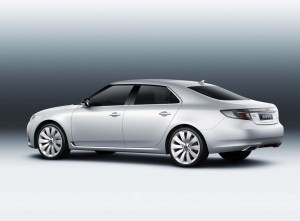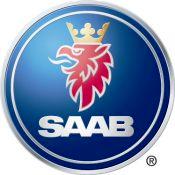General Motors announced today that the intended sale of Saab Automobile AB is dead.
After the withdrawal of Koenigsegg Group AB last month, GM had been in intense discussions the past two weeks with tiny Spyker Cars about its interest in acquiring Saab.
In a statement issued in Detroit, GM said, “During the due diligence, certain issues arose that both parties believe could not be resolved. As a result, GM will start an orderly wind-down of Saab operations.”
At a hastily arranged press conference, John Smith, GM vice president of corporate planning, did not provide details of the issues, but he did say that there were problems with the deal from the perspective of both parties, and that they were “unresolvable,” so there was no sense in proceeding.
Smith said that the capital required from the European investment bank was an open issue when talks concluded earlier this morning in Stockholm where GM was talking with the Swedish government and Spyker.
It is unknown how long the wind down process will take, but from GM’s perspective the sooner the better, as the sale of assets would generate badly needed cash. In its latest quarter, GM lost $1.2 billion.
“We would have preferred a different outcome,” said Smith, who was not in the talks as they concluded today.
In the end, GM was unable to find an investor for Saab. Several thousand jobs will be affected, 3400 Saab employees, not counting 1100 dealers, numerous suppliers and their employees.
Saab will continue to honor warranties, while providing service and spare parts to current Saab owners around the world.

The new 2010 Saab 9-5 is in production and will become a rare car. No current plans to sell tooling, but GM wouldn't rule it out.
“Despite the best efforts of all involved, it has become very clear that the due diligence required to complete this complex transaction could not be executed in a reasonable time. In order to maintain operations, Saab needed a quick resolution,” said GM Europe President Nick Reilly.
“We regret that we were not able to complete this transaction with Spyker Cars. We will work closely with the Saab organization to wind down the business in an orderly and responsible manner. This is not a bankruptcy or forced liquidation process. Consequently, we expect Saab to satisfy debts including supplier payments, and to wind down production and the distribution channel in an orderly manner while looking after our customers.”
GM began seeking a buyer for loss-making Saab’s operations in January as the company struggled, unsuccessfully, to stay out of bankruptcy.
Saab itself filed for reorganization under Swedish Law on 20 February 2009, after GM said no more funding would be provided for the loss-making operation. As part of the plan, Saab said its design, engineering and manufacturing would be consolidated in Sweden.
GM is also in the process shutting down Pontiac, and Saturn, after a deal with Penske fell through, and selling Hummer to the Chinese. A major restructuring of Opel remains incomplete.
Saab has been slowly declining for decades, and annual sales are about 50,000 units, with 10,000 coming from the U.S.
Saab announced last week that sold to Beijing Automotive Industry HoldingsCo. Ltd (BAIC) some Saab 9-3 technology, the older 9-5 model production tooling and some powertrain technology. BAIC has not expressed interest in further purchases.
The older production tooling used for the 9-5 sedan will move to BAIC, where it will produce the cars as BAIC models as soon as 2011. It was not immediately clear if a version of the 9-3 would also be produced in China.
The agreement does not include any rights to the Saab brand name, or the model names. BAIC currently produce trucks under its own brand name, and manufactures vehicles for other brands.
General Motors had signed a memorandum of understandinglast August to sell Saab Automobile AB to Koenigsegg, but without all of the needed financing in place. The Swedish government then refused to lend money to Koenigsegg.
At the time, Koenigsegg said it needed another $425 million to make the proposed business planwork. The business plan developed by Koenigsegg was never revealed, but it was critical for the deal to move forward. The deal collapsed in November, and issues surrounding the sale of Saab were among the factors that led to the “resignation” of CEO Fritz Henderson last month.

